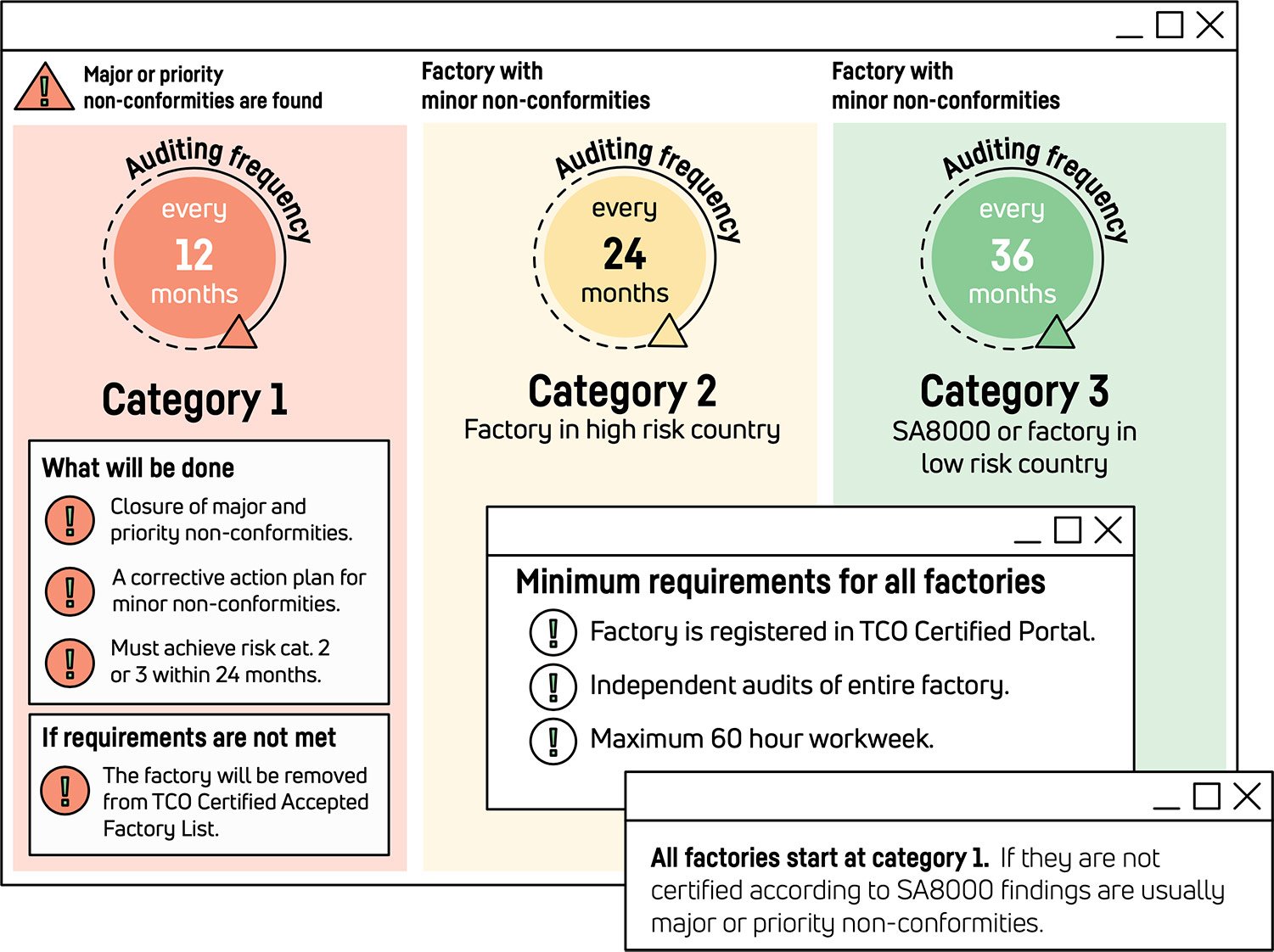An incentive system in TCO Certified helps accelerate the development toward fair working conditions in the IT industry. Factories that make improvements get a business advantage, while factories with persisting sustainability issues may lose their right to manufacture certified products.
Poor working conditions in factories are an ongoing problem, with continuing risk areas such as health and safety protection, forced labor, and excessive working hours. Workers may also be exposed to hazardous substances in cleaning and assembly processes.
Enforcing new practices in a gigantic, multifaceted industry spread across several continents is a challenge. We wanted to quicken the pace toward sustainable manufacturing and looked to develop more efficient methods than the ones we already had. Therefore, we launched TCO Certified Accepted Factory List as part of TCO Certified in 2018.

With TCO Certified Accepted Factory List, all final assembly factories that manufacture certified products are divided into risk categories. Those that are proactive in their work with sustainability, and continuously meet the criteria in TCO Certified are placed in a low risk category, while factories with persisting sustainability issues receive a higher risk category. If major issues are not corrected within a set timeframe, the factory is removed from TCO Certified Accepted Factory List, and is no longer allowed to manufacture certified products.
How TCO Certified Accepted Factory List works
This way of working increases transparency, which is essential for improvement, accountability, collaboration and fair competition. IT product brand owners can view the latest audit findings and corrective action progress, and choose to locate production of their products at a factory that is at the forefront of sustainability. This is groundbreaking: sustainability is now good business for factory owners. More ambitious factories get more business, which is an incentive for factory management to prioritize sustainability issues.
Another benefit is that brand owners that commit to the criteria in TCO Certified are more likely to share the same factories. Instead of trying to meet individual customer requirements that may contradict each other, the industry can then focus on making continual improvements that matter. The risk categorization also allows a more efficient scheme for auditing and follow-up, where stricter monitoring at high-risk factories drives faster progress.
Right now, TCO Certified Accepted Factory List includes 84 factories. Since the launch in 2018, 47 factories have been removed from the list, the majority due to non-compliance with TCO Certified criteria. We have also seen that generally, factory performance has improved significantly, with safer working environments and fewer issues with excessive overtime. More factories are also making an effort to meet stricter audit schedule requirements necessary to maintain a SA8000 certification, to improve their risk category on TCO Certified Accepted Factory List.
TCO Certified Accepted Factory List in short
- Final assembly factories are divided into risk categories.
- To drive faster progress, high-risk factories are monitored more often.
- Brand owners can select factories that are at the forefront of sustainability.
- More ambitious factories get more business, which is an incentive for factory management to prioritize sustainability issues.
- Factories with persisting sustainability issues lose the right to manufacture certified products.




